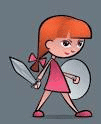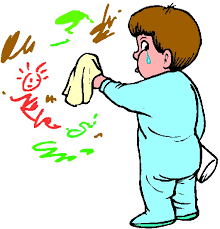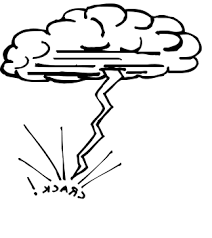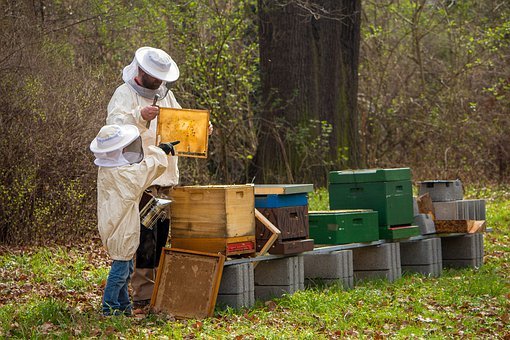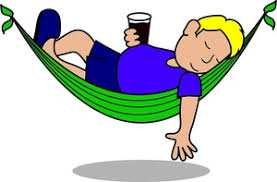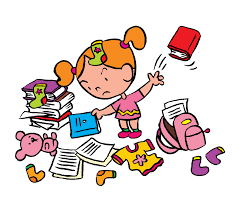Contents
LESSON 3.41
Word List:
Sound the words below on your own. Then listen to the words in the audio clip below. Don’t forget to write the words in your notebooks. When you are done, read the poem below.
busy, mischief, looked, unto, glee, contriving, ringlets, noddle, drew, nun, pressing, fingers, carpet, wise, lips, embrace, ponder, lashes, climb, true
MY GOOD-FOR-NOTHING.
1.
“What are you good for, my brave little man?
Answer that question for me, if you can,—
You, with your fingers as white as a nun,—
You, with your ringlets as bright as the sun.
All the day long, with your busy contriving,
Into all mischief and fun you are driving;
See if your wise little noddle can tell
What you are good for. Now ponder it well.”
2.
Over the carpet the dear little feet
Came with a patter to climb on my seat;
Two merry eyes, full of frolic and glee,
Under their lashes looked up unto me;
Two little hands pressing soft on my face,
Drew me down close in a loving embrace;
Two rosy lips gave the answer so true,
“Good to love you, mamma, good to love you.”
Words
What do you think the following words mean? Use the pictures to help you.
Worksheets
Reading Lesson – My Good for Nothing
LESSON 3.42
Word List
Sound the words below on your own. Then listen to the words in the audio clip below. Don’t forget to write the words in your notebooks. When you are done, read the passage below.
berries, strikes, robin, eagle, short, king, rid, foe, dart, fails, sharp, hawk, worms, active
THE KINGBIRD
1. The kingbird is not bigger than a robin.
2. He eats flies, and worms, and bugs, and berries.
3. He builds his nest in a tree, near some house.
4. When there are young ones in the nest, he sits on the top of a tree near them.
5. He watches to see that no bird comes to hurt them or their mother.
6. If a hawk, a crow, or even an eagle comes near, he makes a dash at it.
7. Though he is so small, he is brave, and he is also very active.
8. He never fails to drive off other birds from his nest.
9. He flies around and around the eagle, and suddenly strikes him with his sharp bill.
10. He strikes at his eye, and then darts away before the eagle can catch him.
11. Or he strikes from behind, and is off again before the eagle can turn round.
12. In a short time, the great eagle is tired of such hard blows, and flies away. He is very glad to get rid of his foe.
13. Is not the little fellow a brave bird?
14. Because he can drive off all other birds, he is called the KINGBIRD.
Words
Worksheets
LESSON 3.43
Word List:
Sound the words below on your own. Then listen to the words in the audio clip below. Don’t forget to write the words in your notebooks. When you are done, read the poem below.
watching, gathers, angels, begin, darkness, across, lonely, beasts

EVENING HYMN
1. Now the day is over,
Night is drawing nigh,
Shadows of the evening
Steal across the sky.
2. Now the darkness gathers,
Stars begin to peep;
Birds, and beasts, and flowers
Soon will be asleep.
3. Through the lonely darkness,
May the angels spread
Their white wings above me,
Watching round my bed.
Worksheet
LESSON 3.44
Word List
Sound the words below on your own. Then listen to the words in the audio clip below. Don’t forget to write the words in your notebooks. When you are done, read the passage below.
divided, quarrel, agree, thus, settle, settling, kernel, equal, apt, parts
THE QUARREL
Under a great tree in the woods, two boys saw a fine, large nut, and both ran to get it. James got to it first, and picked it up. “It is mine,” said John, “for I was the first to see it.”
“No, it is mine” said James, “for I was the first to pick it up.”
Thus, they at once began to quarrel about the nut. As they could not agree whose it should be, they called an older boy, and asked him. The older boy said, “I will settle this quarrel.”
He took the nut, and broke the shell. He then took out the kernel, and divided the shell into two parts, as nearly equal as he could. “This half of the shell,” said he, “belongs to the boy who first saw the nut.
“And this half belongs to the boy who picked it up.
“The kernel of the nut, I shall keep as my pay for settling the quarrel.
“This is the way,” said he, laughing, “in which quarrels are very apt to end.”
Question:
- How did the boy settled the quarrel?
- Do you think the boy was fair? Why?
- How would you share the pizza below among three four people equally?
Worksheet
LESSON 3.45
Word List
Sound the words below on your own. Then listen to the words in the audio clip below. Don’t forget to write the words in your notebooks.
creatures, drones, inside, hive, idle, defense, driven, killed, cells, size, workers, queen, stings, shape, wax
THE BEE
Bees live in a house that is called a hive. They are of three kinds,—workers, drones, and queens. Only one queen can live in each hive. If she is lost or dead, the other bees will stop their work.
They are very wise and busy little creatures. They all join together to build cells of wax for their honey. Each bee takes its proper place, and does its own work. Some go out and gather honey from the flowers; others stay at home and work inside the hive. The cells which they build, are all of one shape and size, and no room is left between them. The cells are not round, but have six sides.
Did you ever look into a glass hive to see the bees while at work? It is pleasant to see how busy they always are. But the drones do not work. Before winter comes, all the drones are driven from the hive or killed, that they may not eat the honey which they did not gather. It is not quite safe for children to handle bees. They have sharp stings that they know well how to use in their defense.
Words:
SLATE WORK
Read the short passage below then copy it in your best handwriting in your notebook.
How doth the little busy bee
Improve each shining hour.
And gather honey all the day
From every opening flower!
LESSON 3.46
Word List
Sound the words below on your own. Then listen to the words in the audio clip below. Don’t forget to write the words in your notebooks.
blossoms, dreary, weary, pinks, smelling, toiling, levies, buzz, fragrant, thistle, weeds, scent, treasure, yellow, meadow, tax, summer, clover, cloudy, daisy, daffodil, lies, columbine, humming

THE SONG OF THE BEE
1. Buzz! buzz! buzz!
This is the song of the bee.
His legs are of yellow;
A jolly, good fellow,
And yet a great worker is he.
2. In days that are sunny
He’s getting his honey;
In days that are cloudy
He’s making his wax:
On pinks and on lilies,
And gay daffodillies,
And columbine blossoms,
He levies a tax!
3. Buzz! buzz! buzz!
The sweet-smelling clover,
He, humming, hangs over;
The scent of the roses
Makes fragrant his wings:
He never gets lazy;
From thistle and daisy,
And weeds of the meadow,
Some treasure he brings.
4. Buzz! buzz! buzz!
From morning’s first light
Till the coming of night,
He’s singing and toiling
The summer day through.
Oh! we may get weary,
And think work is dreary;
‘Tis harder by far
To have nothing to do.
Marian Douglas.
LESSON 3.47
Word List:
Sound the words below on your own. Then listen to the words in the audio clip below. Don’t forget to write the words in your notebooks.
unhappy, promised, heedless, became, growing, careless, harshly, leaving, easily, effects, annoy, ma’am, blame, worse, torn, hardly, nicest, spend, habit, evil
THE TORN DOLL
Mary Armstrong was a pretty little girl, but she was heedless about some things. Her way of leaving her books and playthings just where she had used them last, gave her mother much trouble in picking them up and putting them in their proper places.
She had often told Mary the evil effects of being so careless. Her books became spoiled, and her toys broken. But worse than this was the growing habit of carelessness, which would be of great harm to her all her life. It would make her unhappy, and would annoy her friends.
One day Mary and her mother went out into their pleasant yard, to spend an hour in the open air. Mrs. Armstrong took her work with her. Mary ran about and played with Dash, her pet dog, and was having a happy time. But in a corner of the yard she found her nicest doll all torn and broken, and its dress covered with mud. She knew, at once, that Dash had done this, and she scolded him harshly. Carrying the broken doll to her mamma. She showed it to her, and could hardly keep from crying.
Mrs. Armstrong asked Mary if she had not left the doll on the porch where Dash could easily get it; and Mary had to answer, “Yes, ma’am.”
“Then you must not blame the dog, Mary, for he does not know it is wrong for him to play with your doll. I hope this will be a lesson to you hereafter, to put your things away when you are through playing.”
“I will try,” said Mary. And her mother promised to mend the doll as well as she could.


